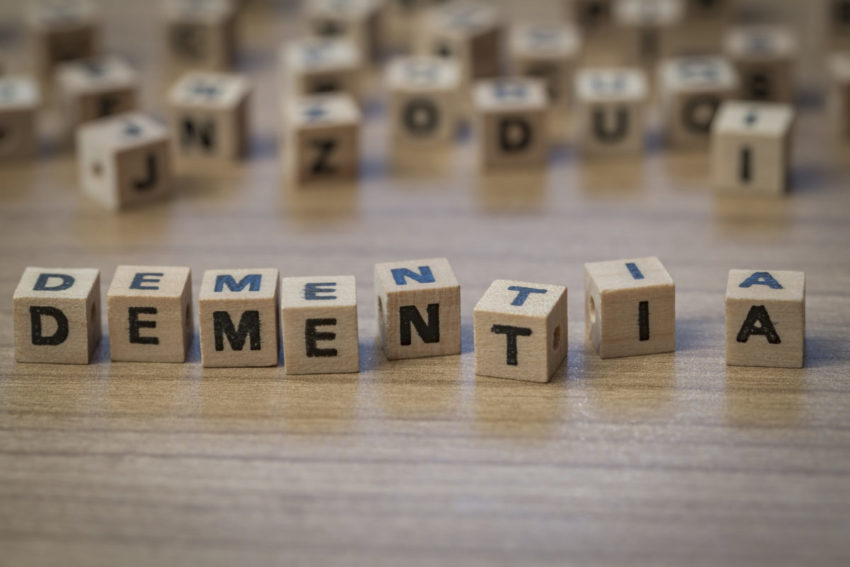Developing novel and effective treatments for Alzheimer’s disease and other dementias requires information on the genetics and biology of all ethnic groups. “One of the themes we are trying to build on is understanding the disease in Hispanics,” said Sudha Seshadri, M.D., professor of neurology at UT Health San Antonio and founding director of the university’s Glenn Biggs Institute for Alzheimer’s and Neurodegenerative Diseases.
To learn more from Dr. Seshadri and other researchers, attend a free panel discussion on dementia Sunday afternoon, Feb. 23, at UT Health San Antonio. The event is 3 to 5 p.m. in the Holly Auditorium, 7703 Floyd Curl Drive, San Antonio, Texas 78229.
The lineup of international speakers will discuss “New Hope for Treating and Preventing Alzheimer’s and Other Dementias: Discoveries from Around the World.”
“We have invited researchers from South America and Spain, as well as from South Texas, to discuss populations that have some similar genes as well as some different genes,” Dr. Seshadri said. “In South America and South Texas, there is a mix of native American ancestry, and in Spain, it’s more the original Spanish ancestry. We want to pool data across these different samples to better identify the unique biology.”
The Biggs Institute is a key U.S. center for enrolling Hispanics into clinical trials, and everyone, including Hispanics, can benefit from the institute’s clinical trials program.
“We have trials for prevention, trials for people with mild cognitive impairment and trials for people with advanced disease,” Dr. Seshadri said. “Other trials are not of immediate benefit to a given patient but are conducted to understand what is happening with the disease process and how a drug may work.”
At the free event, the public is invited to:
- Talk to leading physicians and researchers about dementia care and research;
- Be connected to clinical trials and talk to clinical team members leading the trials;
- Hear the latest discoveries from the region’s first brain bank and learn what this research means for the future of dementia care;
- Hear a bilingual panel discussion with world-renowned experts on new therapies being offered around the world; and
- Learn about local resources and social events for individuals with dementia and their caregivers.
The event begins with opening remarks, following by the panel discussion moderated by David Martin Davies, host of Texas Public Radio’s “The Source” program.
Attendees can meet the experts at tables starting at 4:30 and also enjoy a closing reception.
Registration is required. Registration and parking are free. Handicapped parking and shuttle transportation from the parking lot to the event will be available.
Watch a video preview.
Dementia public event speakers
- Sudha Seshadri, M.D., of the Glenn Biggs Institute at UT Health San Antonio
- Angelica Davila, M.D., geriatrician at UT Health Physicians, part of UT Health San Antonio
- Hector M. Gonzalez, Ph.D., of the Shiley-Marcos Alzheimer’s Disease Research Center at the University of California, San Diego
- Gregory A. Jicha, M.D., Ph.D., of the Sanders-Brown Center on Aging at the University of Kentucky
- Jeffrey Kaye, M.D., of Oregon Health and Sciences University
- Gladys Maestre, M.D., Ph.D., of the Memory Disorders Center at The University of Texas Rio Grande Valley (UTRGV) School of Medicine
- Jason Resendez of Us Against Alzheimer’s and the Latinos Against Alzheimer’s Coalition
- Merce Boada Rivera, M.D., Ph.D., of Fundacio ACE – Barcelona Alzheimer Treatment and Research Center
The Biggs Institute, in partnership with the Alzheimer’s Association, will also present the Second Annual South Texas Alzheimer’s Conference. This three-day forum will allow scientists, health care professionals and students to hear the latest discoveries in Alzheimer’s disease/dementia from world-renowned experts. Sponsors include the UTRGV School of Medicine and The University of Texas at San Antonio.
# # #
The Long School of Medicine at The University of Texas Health Science Center at San Antonio is named for Texas philanthropists Joe R. and Teresa Lozano Long. The school is the largest educator of physicians in South Texas, many of whom remain in San Antonio and the region to practice medicine. The school teaches more than 900 students and trains 800 residents each year. As a beacon of multicultural sensitivity, the school annually exceeds the national medical school average of Hispanic students enrolled. The school’s clinical practice is the largest multidisciplinary medical group in South Texas with 850 physicians in more than 100 specialties. The school has a highly productive research enterprise where world leaders in Alzheimer’s disease, diabetes, cancer, aging, heart disease, kidney disease and many other fields are translating molecular discoveries into new therapies. The Long School of Medicine is home to a National Cancer Institute-designated cancer center known for prolific clinical trials and drug development programs, as well as a world-renowned center for aging and related diseases.
The University of Texas Health Science Center at San Antonio, dba UT Health San Antonio, is one of the country’s leading health sciences universities and is designated as a Hispanic-Serving Institution by the U.S. Department of Education. With missions of teaching, research, patient care and community engagement, its schools of medicine, nursing, dentistry, health professions and graduate biomedical sciences have graduated more than 37,000 alumni who are leading change, advancing their fields, and renewing hope for patients and their families throughout South Texas and the world. To learn about the many ways “We make lives better®,” visit www.uthscsa.edu.
Stay connected with The University of Texas Health Science Center at San Antonio on Facebook, Twitter, LinkedIn, Instagram and YouTube.


